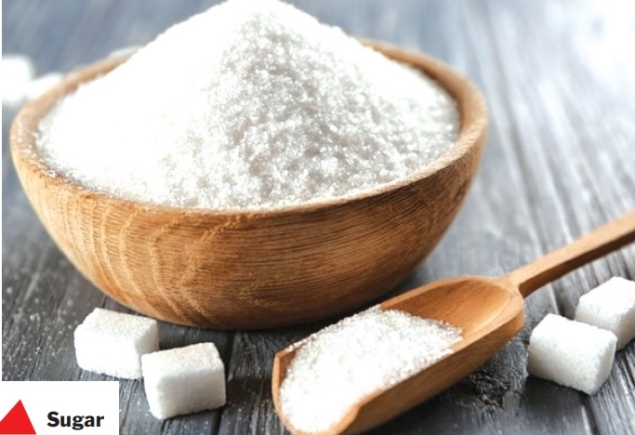
How sugar in drinks destroys the body
Two recent studies (Malik and Hu,2022; Neelakantan et al.,2021) found that the more we eat sugary diets, the more it leads to weight gain and increased risk of Type 2 diabetes.
Advertisement
Additionally, Ma et al.,(2016) found that the more we drink sugar-sweetened beverages, the more we predispose ourselves to visceral fat, a kind of deep belly fat linked to diabetes and heart disease.
One human study (Janzi et al.,2020) evaluated 25,877 adults and found that those who ate sugar stood the chance of getting heart disease and coronary problems,compared to those who ate less sugar.
By just eating about eight servings per week, sugar-sweetened beverages increase the risk of stroke.
Just one 12-ounce (473-ml) can of soda contains 39 grams of sugar,which equates to eight per cent of your daily calorie consumption, based on a 2,000-calorie diet (https://us.coca-cola.com/products/coca-cola/original ).
This means that one sugary drink a day can bring you close to the recommended daily limit for added sugar.
Acne, Type 2 diabetes, cancer
One study by Penso et al., (2020) evaluated over 24,452 individuals and reported that taking fatty and sugary products,sugary beverages and milk was linked with present acne in adults.
Finally, Campbell and Strassmann (2016) found that rural communities that consume traditional, non-processed foods have much lower rates of acne compared to more urban,high-income areas where processed food is part of a standard diet.
Rippe and Angelopoulos’ (2016) study also found that too much sugar has been connected with an increased risk of diabetes.
Though we cannot pinpoint the fact that sugar consumption causes diabetes,there are strong connections.
This is because eating too much sugar could indirectly raise diabetes risk by contributing to weight gain and increased body fat — both of
which are risks for developing diabetes (Stanhope,K,2015).
On the other side,Leitner et al.,(2017) study also found that obesity is regarded as a result of too much sugar, and is considered the strongest risk factor for diabetes.
It has been established that too much sugar could increase some cancers.
This is because too much sugar increases obesity and eventually could trigger some cancers (Crudele et al.,2021).
One human study (Miles et al.,2018) in 22,720 men over nine years found that increased sugar consumption from sugar-sweetened beverages was linked to a higher risk of prostate cancer.
Speed skin, cellular aging
Aragno and Mastrocola, (2017) established that advanced glycation end products (AGEs) are compounds formed by reactions between
sugars and proteins in the body, speeding skin ageing.
Also, Galiè et al.,(2020) found that eating too much sugar accelerates telomere shortening, which increases cellular ageing.
For instance, a pilot study (Wojcicki et al.,2018) on 61 preschool-aged children found that too many sugar-sweetened beverages were connected to decreased telomere length, signifying cellular ageing.
Telomeres are structures found at the end of chromosomes, which are molecules that hold part or all of your genetic information.
Too much sugar, energy
Mantantzis et al.,(2019) found that sugar-loaded products that lack protein, fibre or fat lead to a brief energy boost,followed by a sharp dip in blood sugar, often referred to as a crash.
A previous study by O'Reilly et al.,(2015) found that experiencing constant blood sugar swings can cause major fluctuations in energy levels.
Mantantzis et al.,(2019) meta-analysis examining sugar’s effect on mood found that carbohydrate consumption,particularly sugar, lowers alertness within 60 minutes of consumption, and increases fatigue within 30 minutes after consumption.
Jensen et al,.(2019) agreed that too much intake of added sugar in the form of fructose burden the liver,thus leading to non alcoholic fatty liver disease (NAFLD), a condition characterised by extreme fat buildup in the liver.
Other risks
Too much sugar could also harm you in other ways.
For instance: •Miao et al.,(2021) found that fructose raises serum concentrations of urate, thus increasing kidney disease.The
inability to manage raised blood sugar levels can also damage the delicate blood vessels in your kidneys, increasing the risk of kidney
disease (Melsom et al.,2016).
• Bad dental health:
Naorungroj S's (2020) study notes that too much sugar can increase cavities.
This is because bacteria in the mouth feed on sugar and release acid byproducts, which cause tooth demineralisation
• Gout is an inflammatory condition characterized by pain in the joints.
A study (Ebrahimpour-Koujan et al,. 2020) held that too many sugars raise uric acid levels in the blood,increasing the risk of developing or worsening gout.
How much?
The heart.org recommends that men eat no more than nine teaspoons (36 grams or 150 calories) of added sugar per day.
Women should eat no more than six teaspoons (25 grams or 150 calories).
Studies have demonstrated the many negative health implications associated with taking too much sugar. Though small amounts of sugar as recommended are good for your health, you should cut it down or do away with it.
The writer is Professor, Naturopathic Healthcare/President, Nyarkotey College of Holistic Medicine &Technology (NUCHMT)/African
Naturopathic Foundation. He adheres to stric sourcing, studies and academic papers in his articles, which are for educational purposes only, and not medical advice for treatment.
E-mail: [email protected]




